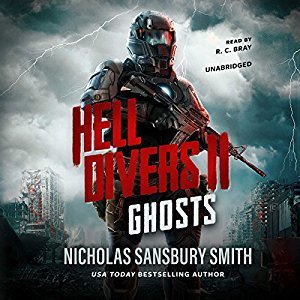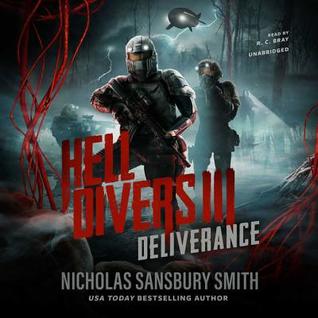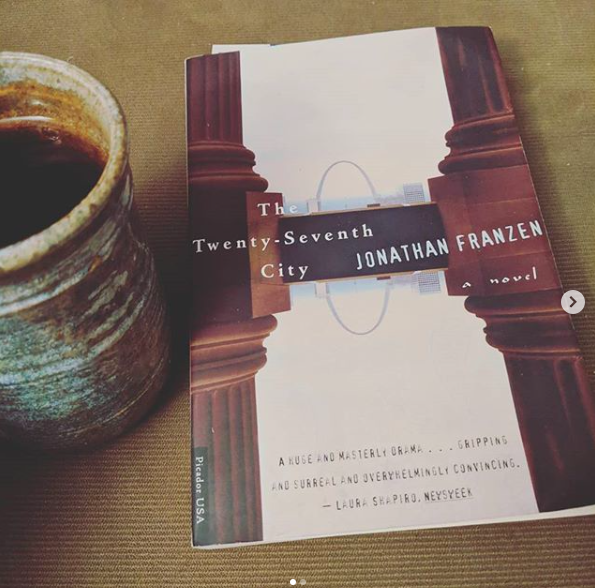I won a copy of Hell Divers II (by Nicholas Sansbury Smith) through Goodreads. But I didn’t want to read it until I’d read the first one. So, I borrowed an audio version of Hell Divers through Hoopla and then I just sort of kept going until I reached Hell Divers III, whew I stopped.
Hell Divers:
I went into this skeptical. I expected a lot of male bravado and that too often equals toxicity. But I was pleasantly surprised. Yes, it was still a little heavy on the importance of a man’s duty and the stabilizing influence of family (even if family was usually just the tragedy that spurn men to action and fairly cardboard in actuality). But there was also some depth to the story. I appreciated the difference in perspective of the upper-deckers and the lower-deckers, and how having a limited perspective (especially if you don’t know it is limited) can be dangerous, even to the righteous.
I did find the suspension of dis-belief necessary to believe a whole mutated species developed and bred widely enough to infect at least two distant cities without anyone noticing or ever encountering them a little hard to come by. If Hell Divers have the brief life expectancy they’re said to have, then they must dive relatively frequently.
All in all, I enjoyed it and don’t dread reading book two. And R. C. Bray did a nice job with the narration. He occasionally sounded a little machine-like, as if he was imitating a computer or robot, but not too often. I look forward to book II.
Ghosts:
I didn’t appreciate this second book as much as the first. I thought the characters’ motivations more cliched and the characters themselves not as interesting. Plus, Xavier is barely in it.
Having said all that, I did still like it. I’m still invested in the story and one of my questions from book one was partially addressed, how the Sirens evolved so quickly. I have no complaints about Bray’s narration and all in all, I’m up for book three.
Deliverence:
I wouldn’t say this was bad. It was structurally and editorially sound. However, I found the characters’ motivations even shallower than in book two. And I commented on how much more cliched I found the motivations in book two than in book one. So, we’re pretty far down the relatable, investment scale by book three here. Honestly, I was just plain bored with it. Unlike the first book, there was nothing new or interesting here. I don’t feel any pressing need to continue the series. Bray still did fine with the narration though.



